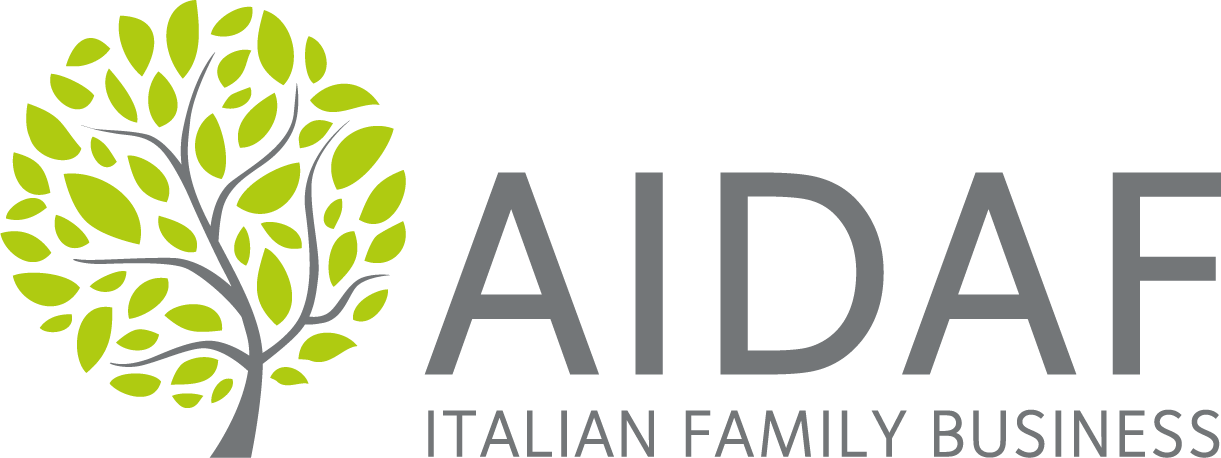Family businesses
FAMILY BUSINESSES IN ITALY
16%

WEIGHT ON GDP
85%

FAMILY COMPANIES IN ITALY
260

BILLION TOTAL TURNOVER
Family businesses form the backbone of the Italian economy.
The XIV edition of the AUB Observatory confirms the great importance of family businesses, representing 65% (equal to 11,635) of the total number of Italian companies, without differences from the previous edition.
In order to avoid duplication of data, subsidiaries have been eliminated in the case of singlebusiness groups and parent companies (often financial holding companies) in the case of multibusiness groups. As a result, the AUB Observatory analyzes the structure and performance of 8,589 family groups.
In 2021, family firms recorded a “rebound” in revenues of more than 20%, higher than that of non-family businesses. The same trend was confirmed in the first half of 2022 (where data are available only for listed companies). Marche, Lombardy and Liguria are among the regions with the highest revenue growth rate. In term of sectors, Metal Products, Rubber and Plastic, Chemical and Furniture have the highest revenue growth rates. By contrast, sectors with the lowest growth rates include Fashion, Pharmaceutics and Mechanics.
In 2021, the net profitability of family firms exceeded the value of 2019 (ROE 2021 equal to 13.6% vs 13.0% in 20219). The same trend was confirmed in the first semester of 2022 where data is available only for listed companies (ROE 2022 of 8.3% vs ROE 2019 of 6.9%).
Geographically, the performance of some large southern regions such as Calabria, Campania and Sicily are interesting, confirming the ability of family firms in those regions to develop attractive business models. From the industry perspective, all sectors show an improvement in net profitability except Paper and printing and Pharmaceutics (the latter, however, maintains double digit performance). Electronics, Means of transportation, Fashion and Furniture show the highest rates in terms of net profitability.
Italian family businesses also stand out for their longevity: among the top 100 oldest companies in the world, 13 are Italian and among these, 5 – Fonderie Pontificie Marinelli (year of foundation 1000), Barone Ricasoli (1141), Barovier & Toso (1295), Torrini (1369) and Marchesi Antinori (1385). It can be seen that the Milan Stock Exchange is the second largest Euronext market in terms of number of listed companies (422), and it is the highest one for incidence of familycontrolled companies (74.9%)3. In addition, Italy is the stock market (together with France) where family owners hold the highest controlling share in the ownership (about 60%)
FAMILY BUSINESSES IN THE WORLD
Even in the main world economies, family businesses represent the fulcrum of economic and social development. In a report by the Economist, published in April 2015 and dedicated entirely to family businesses, it is underlined that family-owned businesses represent more than 90% of active businesses in the world.
The Global Family Business Index, created by the Center for Family Business at the University of St. Gallen in Switzerland, in cooperation with the EY Global Family Business Center of Excellence, analyzes the top 500 family-owned companies worldwide. The most represented countries are the United States (with 122 companies on the list), Germany (79), France (28), Hong Kong (21), Switzerland (19) and India (17). Italy is in 7th place with 17 family businesses.
In 2010, a study conducted by EU-EFIGE/Bruegel-UniCredit on a sample of around 14,000 European businesses showed that the incidence of large family businesses – intended as businesses with more than 250 employees -, while decreasing with growth in size, is in any case higher than 40% in the primary European countries: in France it is equal to 42.5%, in the United Kingdom it is 40.6% and in Spain it is close to 46%. In Italy the percentage of large family businesses is just under 47%. Germany confirms its status as an “atypical economy”, with a percentage of large family-run businesses equal to 67.9%.
.
